Politics
OWERRI MUNICIPAL COUNCIL EMBARKS ON TRANSFORMATIVE JOURNEY WITH NEW SOLE ADMINISTRATOR
Published
10 months agoon
By
Ekwutos Blog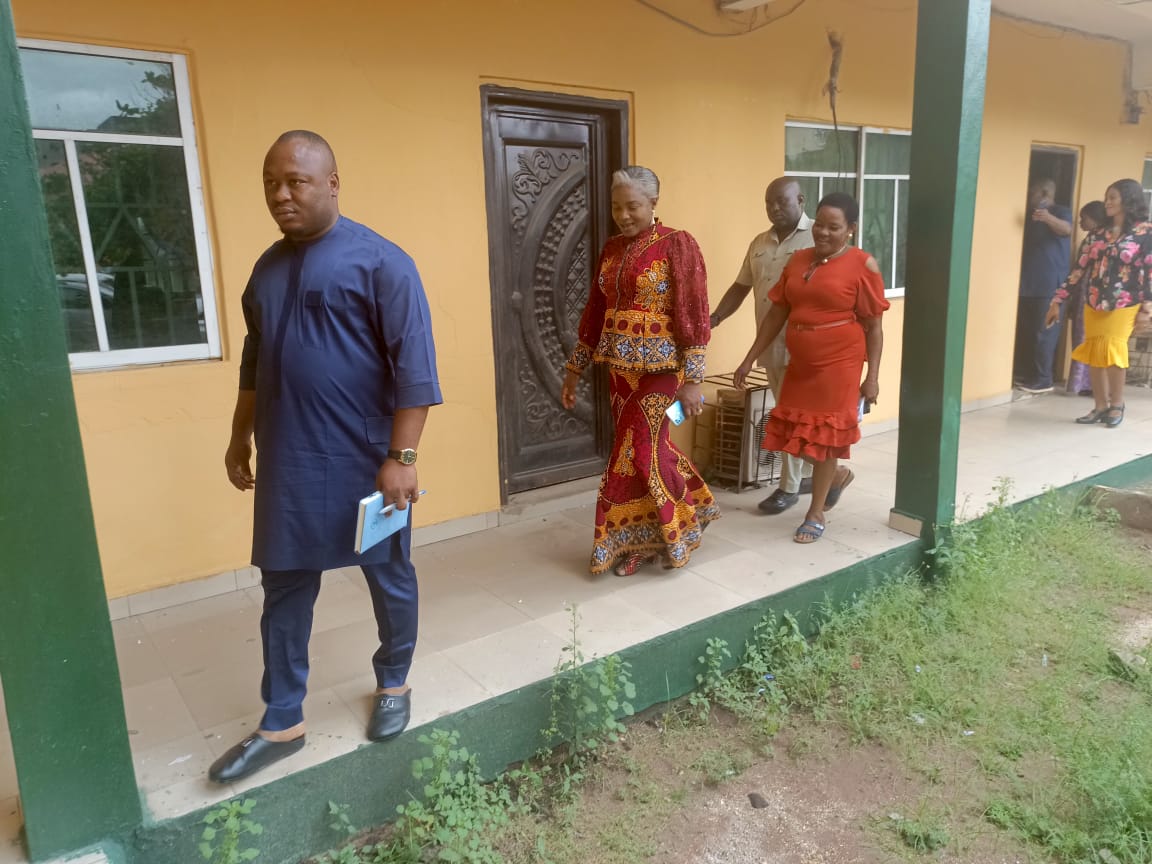
… _As Hon. Chidiebere Emeribe Pledges Commitment to Enhancing Work Environment and Service Delivery_
Owerri, Imo State – June 6, 2024
IMG_5878
In a significant move aimed at improving service delivery and working conditions, the Sole Administrator of Owerri Municipal Council, Hon. Chidiebere Emeribe, conducted an extensive tour of the local government area’s facilities and workforce. This initiative underscores his dedication to providing quality and sustainable services to the residents of Owerri Municipal.
IMG_5877
The comprehensive tour allowed Hon. Emeribe to inspect various departments, interact with employees, and assess the state of work facilities. It served as a strategic medium to identify departmental needs, understand workforce distribution, and meet with Heads of Departments (HODs). Leading the tour was the staff welfare chairman, Mr. Kenneth Nwarie, who guided the Sole Administrator through the different sections of the council.
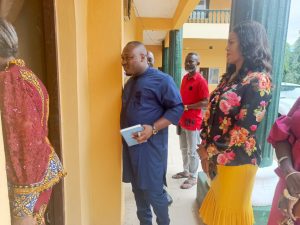
Accompanying Hon. Emeribe on this tour were key council officials, including; Mrs. Ugo Ugbaja (JP), LGA DAGS, Mr. Okereke CN, LGA HOD Personnel, Dr. Nick Obinatu, LGA Director of Finance, Mr. Chidi Ucheghara, LGA Nulge Chairman, Mrs. Chinyere Helen, LGA Internal Auditor, and Mrs. Ihezuruike Ursula, LGA Clerk.
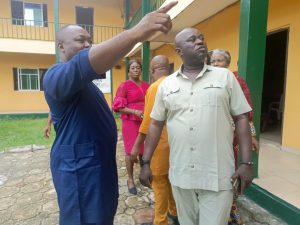
Addressing the council workers and their respective HODs, Hon. Emeribe emphasized the importance of unified partnership and purposefulness in the execution of their duties. He commended their efforts and urged them to avoid negligence to duty, which would not be tolerated. He assured the workers of his availability and eagerness to collaborate with them to ensure continuous and profitable development within the council.
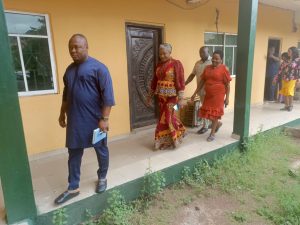
Regarding the structural facilities, Hon. Emeribe promised to address them in a bid to create a smooth, conducive, and comfortable working environment. This commitment aims to enhance the efficiency and morale of the workforce.
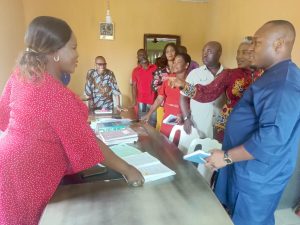
Mrs. Ugo Ugbaja, the LGA DAGS, lauded the Sole Administrator’s dedication and proactive approach. She described Hon. Emeribe as a progressive leader whose tenure is poised to bring significant improvements and productivity. Mrs. Ugbaja pledged the workforce’s full support and assured that all efforts would be geared towards achieving the Sole Administrator’s vision of a revitalized and highly productive Owerri Municipal Council.
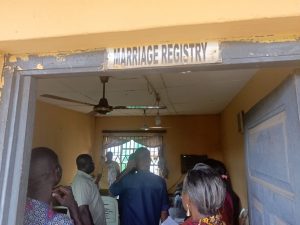
The council’s renewed focus on a healthy and conducive working partnership marks a new positive dimension for Owerri Municipal. With Hon. Emeribe at the helm, the council is set to reach greater heights, ensuring that the services provided to the Owerri Municipal residents are of the highest standard.
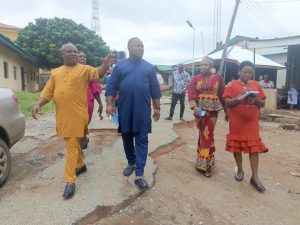
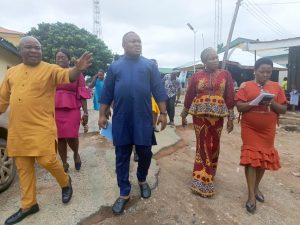
©️Comr. Metu
You may like


Rivers: Court adjourns suit challenging appointment of LG administrators


We don’t want to depend on China in case of war – Trump


Ebonyi state Lawmaker Demands Restoration Of Abakaliki Street that was changed to Club road In Awka
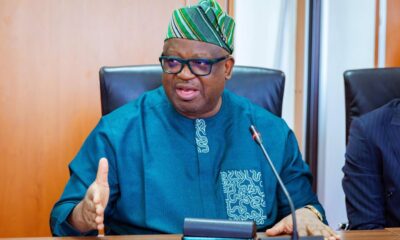

Plateau attacks: Mutfwang convenes security meeting
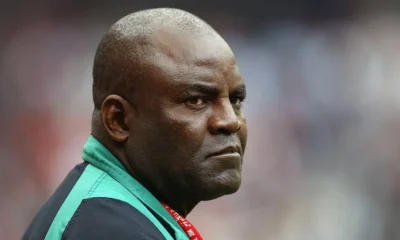

NFF denies owing late Christian Chukwu amid social media claims


VP KASHIM SHETTIMA APPLAUDS GOV ENO’S INVESTMENT IN HUMAN CAPITAL DEVT.
Politics
Rivers: Court adjourns suit challenging appointment of LG administrators
Published
1 hour agoon
April 15, 2025By
Ekwutos Blog
The Federal High Court sitting in Port Harcourt has adjourned to May 22, 2025, the hearing of a suit seeking to bar Rivers State Sole Administrator, Ibok-Ete Ibas, from appointing local government administrators across the 23 Local Government Areas of the state.
The claimant, Oyingi Imiete, at the resumed hearing, told the court that the matter was scheduled for hearing of a motion for interlocutory injunction.
Imiete, however, revealed that the respondent had already appointed sole administrators for all 23 LGAs on April 9, 2025, allegedly after receiving the court’s order and originating processes in the suit.
He explained that service was effected by the court bailiff on the same day as the appointments.
“The matter came up for motion. The applicant’s motion and they said the motion was withdrawn by the applicant.
“The applicants had equally put in the motion for mandatory restorative order and it equally has been fixed for hearing because the actions of the respondent have greatly affected the subject matter before the court,” the claimant said.
Responding, counsel for the defendant argued that the originating processes were not served until two days after the appointments and supported the claimant’s decision to withdraw the motion, calling the appointments a completed act.
He added that his client had not yet been served the new motion and reserved the right to respond when properly served.
Both parties agreed to proceed with a substantive hearing of the originating summons.
The court stressed that despite perceived frivolity, all applications must be heard and stated that the facts and issues remain within the purview of the parties.
The case was subsequently adjourned to May 22, 2025, for further hearing.
The suit, filed by the PILEX Centre for Civic Education Initiative and its coordinator Courage Nsirimovu, seeks to stop the administrator from making such appointments, which the plaintiffs argue are unconstitutional and violate the principles of democratic governance.
Justice Adamu Turaki Mohammed, on April 7, granted an interim injunction barring Ibas from proceeding with the appointments and summoned him to appear before the court to explain why the injunction should not be made permanent.
However, the Sole Administrator went ahead to make the appointments, which drew criticisms from civil society organizations.
Politics
We don’t want to depend on China in case of war – Trump
Published
1 hour agoon
April 15, 2025By
Ekwutos Blog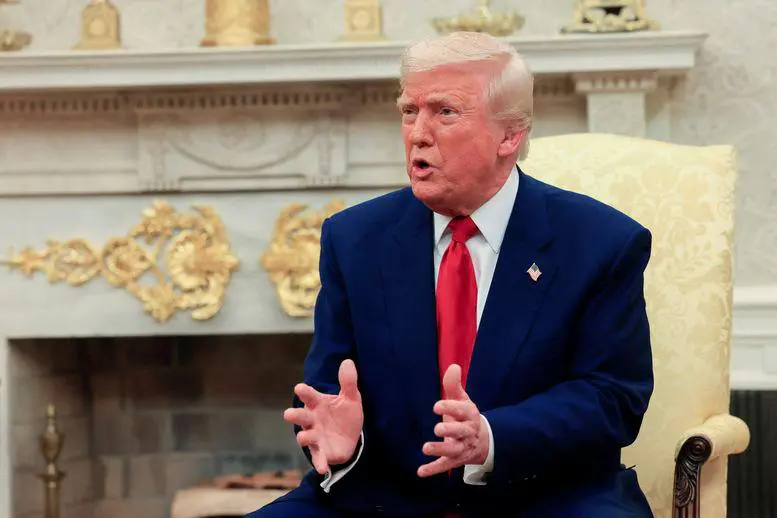
President Donald Trump has said more products need to be produced in the United States, so it is prepared in case of “war.”
There are fears of a recession around the world with Trump’s crackdown on imports.
It is believed to be part of his plan to ramp up domestic manufacturing and have more goods made in America.
In his latest explanation of the tariff policy, Trump claimed it was necessary to deal with any future war.
Trump made the comments on Air Force One while talking about possible pharmaceutical tariffs on Sunday.
He said: “We’re going to have our drugs made in the United States.
“So that in case of war, in case of whatever, we’re not relying on China and various other countries, which is not a good idea.”
Trump put a 90-day pause on many of his on-again, off-again reciprocal tariffs, but left in place a 145% import tax on goods from China.
In response, Beijing suspended exports of certain rare earth minerals and magnets that are crucial for the world’s car, semiconductor and aerospace industries.
Politics
Ebonyi state Lawmaker Demands Restoration Of Abakaliki Street that was changed to Club road In Awka
Published
1 hour agoon
April 15, 2025By
Ekwutos Blog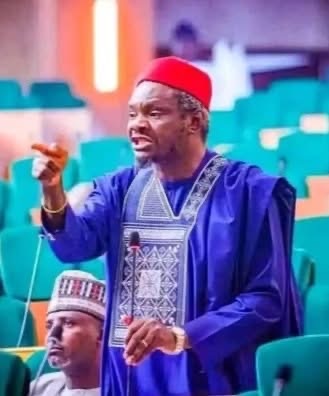
The Member Representing Ikwo/Ezza South Federal Constituency, Chinedu Ogah has called for the restoration of Abakaliki Street in Anambra State to promote unity and oneness among the two states.
Abakaliki street in Awka was changed to Club Road by Anambra State Government.
Chinedu Ogah who is the Chairman, House Committee on Correctional Services urged Governor Chukwuma Soludo to immediately restore Abakaliki Street in the state, warning that failure to do so, may make Ebonyi State to start changing all streets in Abakaliki to Ebonyi names and villages.
He noted that Anambra has over 100 streets in Ebonyi State and wondered why the only street named after Ebonyi State should be changed in Anambra.
Chinedu Ogah said Ebonyi State has been so kind to Anambra people by accommodating them in all aspects of life including elective positions and other areas, whereas Ebonyi people living in Anambra have not been treated fairly in that state.
”Professor Chukwuma Soludo should readdress the issue of changing Abakaliki Street to Club Street in Anambra. If he fails to do this, it will make Ebonyi people to change all the names of Anambra streets in Ebonyi State”
“In Abakaliki, Ebonyi State capital, we have Awka Street, Onitsha Street, Ekwulumili Street, Ekwulobia Street, Aforezuna Street and many others, and they have not been changed.
“Anambra has over 100 streets in Abakaliki but the only one street named after Abakaliki in Anambra State has been changed. Governor Soludo should change his decision immediately. If he doesn’t do so, we will start renaming the streets we named Anambra to our own names and our villages.

Rivers: Court adjourns suit challenging appointment of LG administrators

We don’t want to depend on China in case of war – Trump

Ebonyi state Lawmaker Demands Restoration Of Abakaliki Street that was changed to Club road In Awka
Trending

 Trending6 months ago
Trending6 months agoNYA demands release of ‘abducted’ Imo chairman, preaches good governance
- Business6 months ago
US court acquits Air Peace boss, slams Mayfield $4000 fine

 Politics6 months ago
Politics6 months agoMexico’s new president causes concern just weeks before the US elections
- Entertainment6 months ago
Bobrisky transferred from Immigration to FCID, spends night behind bars
- Entertainment6 months ago
Bobrisky falls ill in police custody, rushed to hospital

 Politics6 months ago
Politics6 months agoRussia bans imports of agro-products from Kazakhstan after refusal to join BRICS

 Politics6 months ago
Politics6 months agoPutin invites 20 world leaders
- Politics1 year ago
Nigerian Senate passes Bill seeking the establishment of the South East Development Commission.

